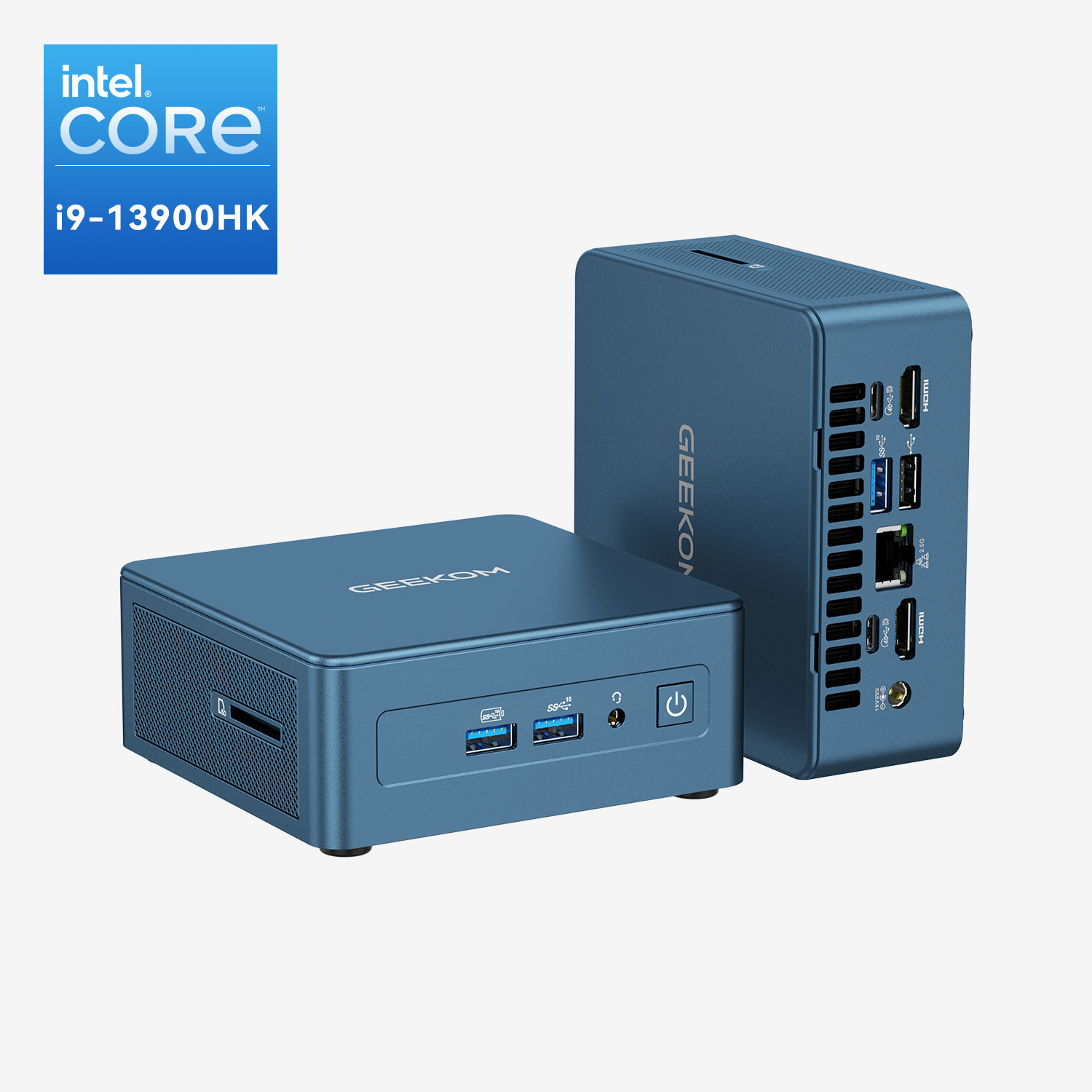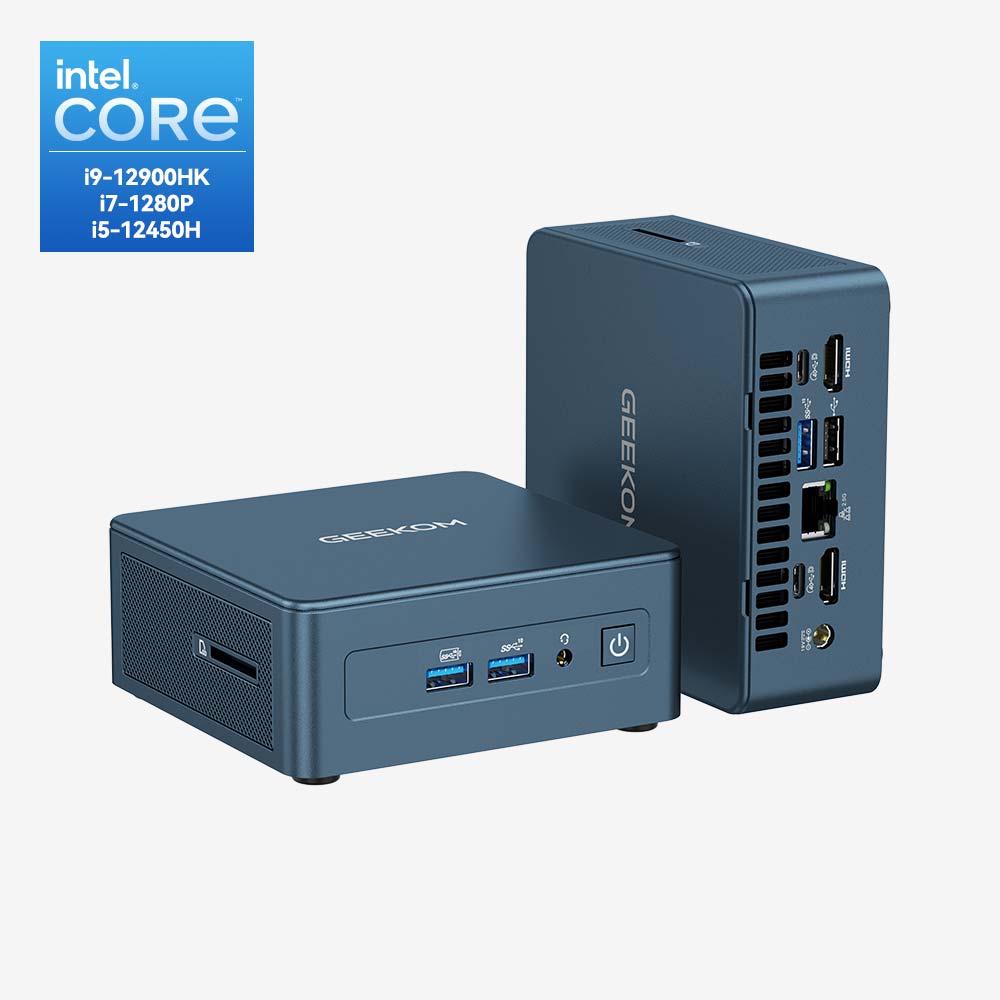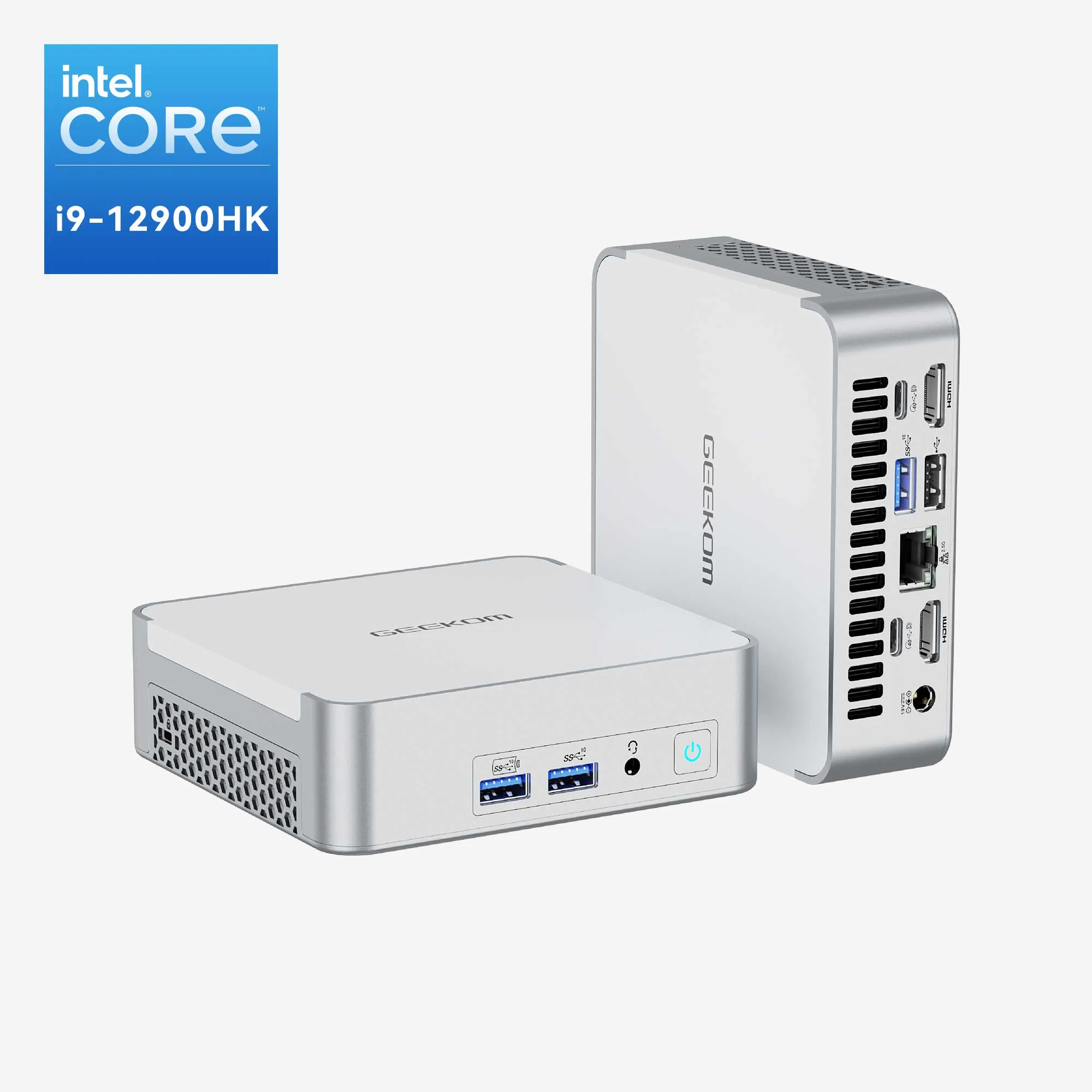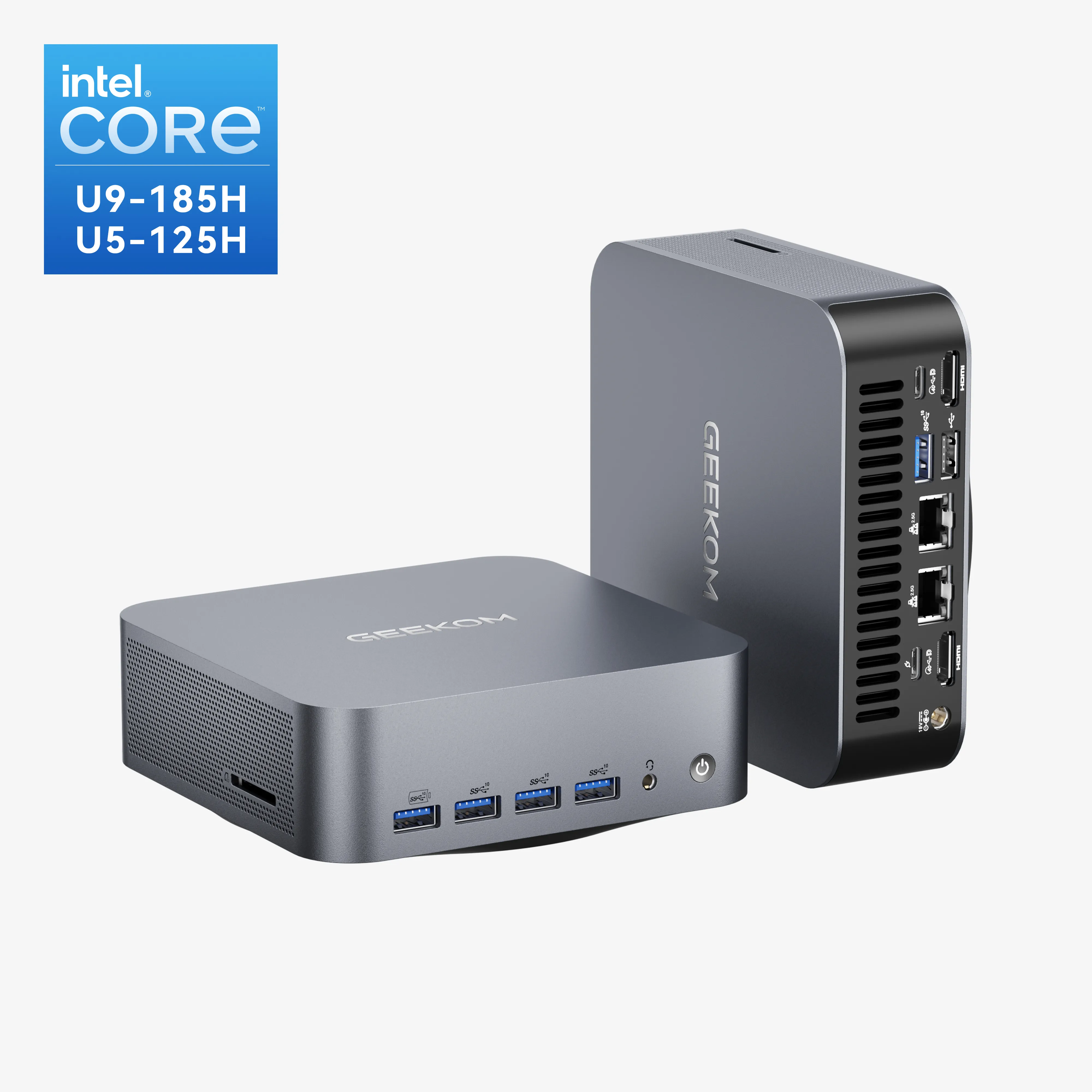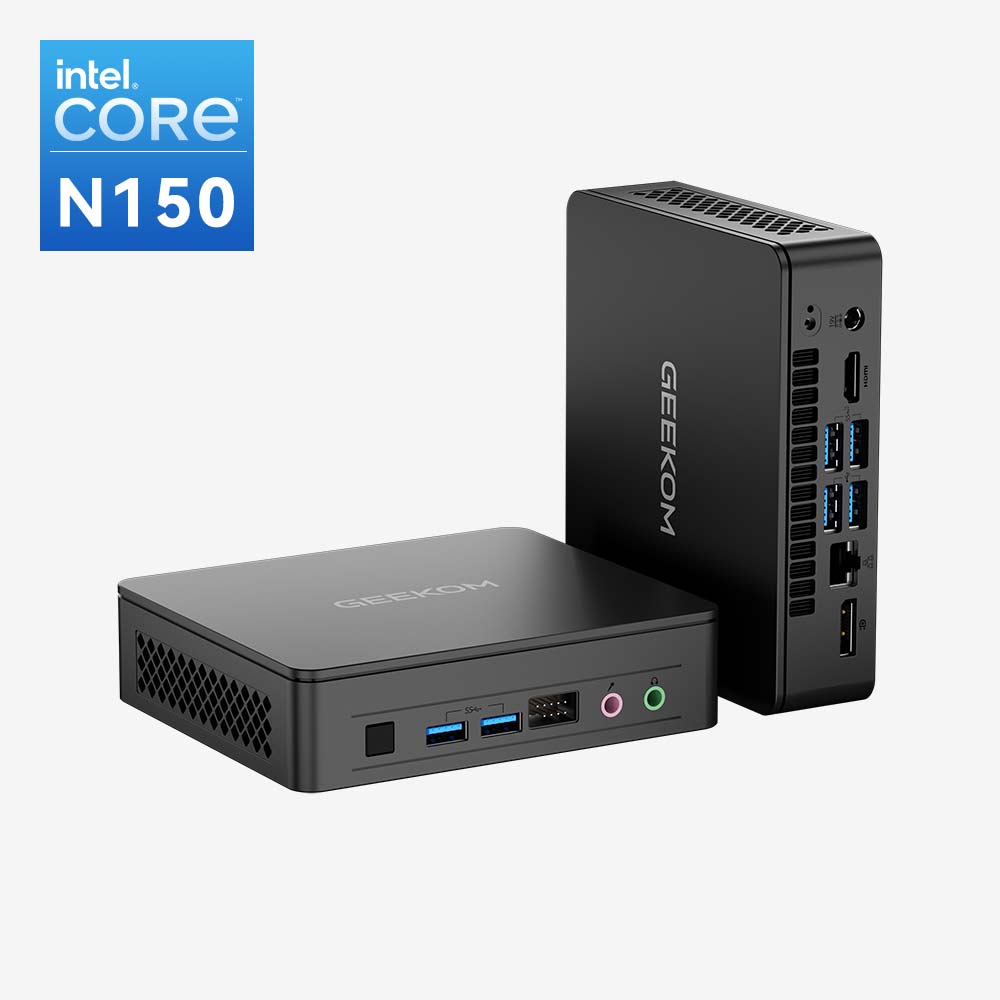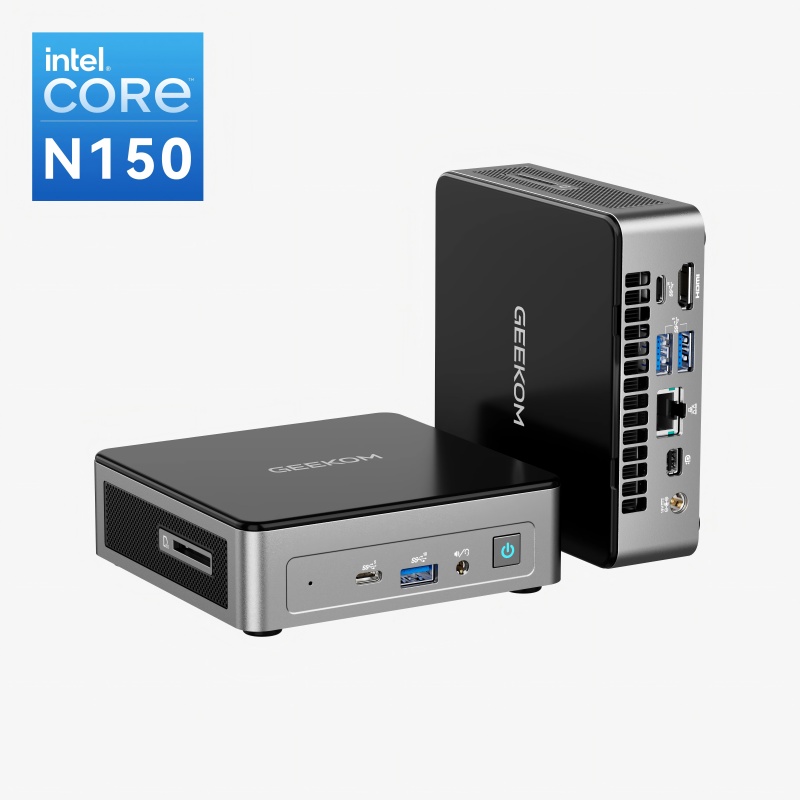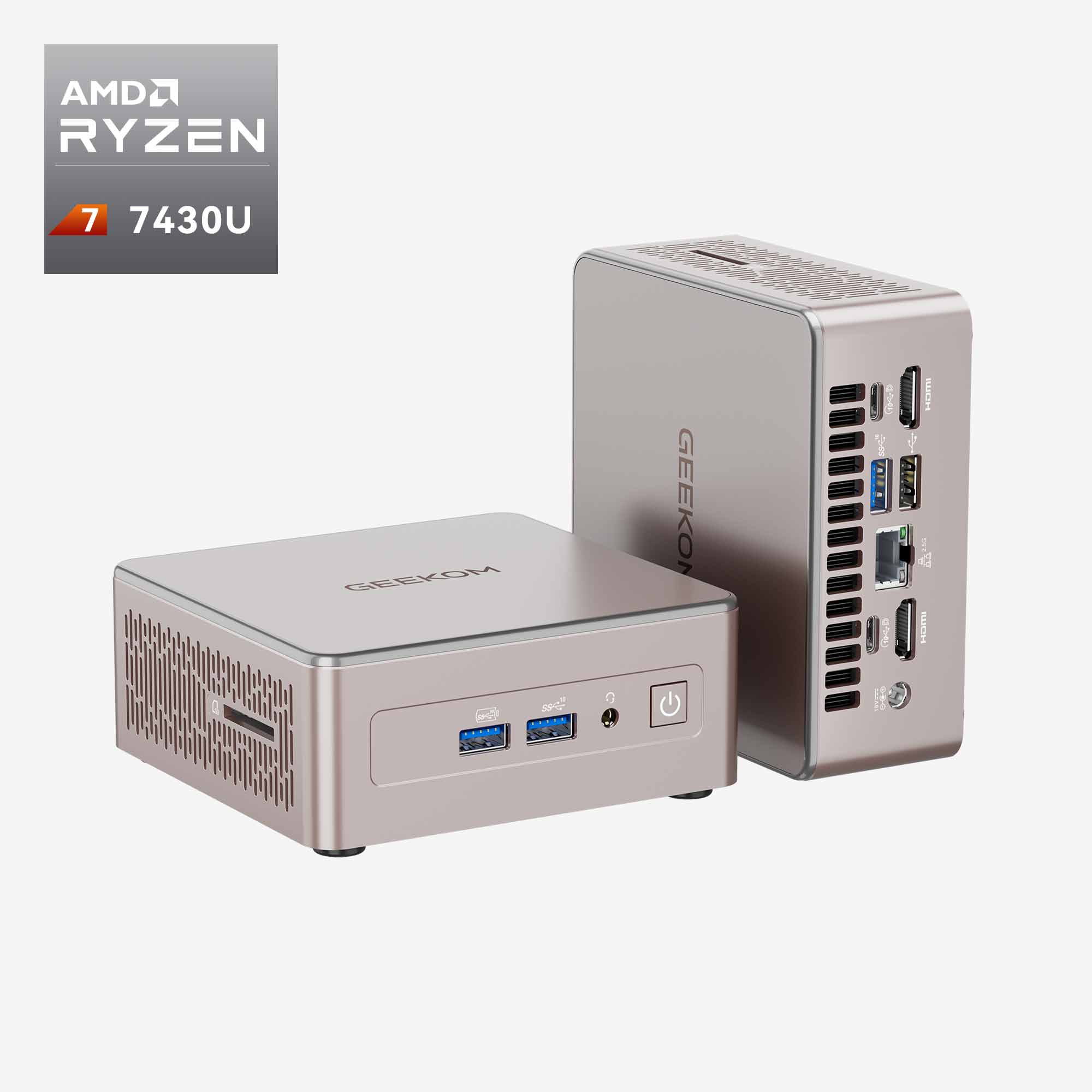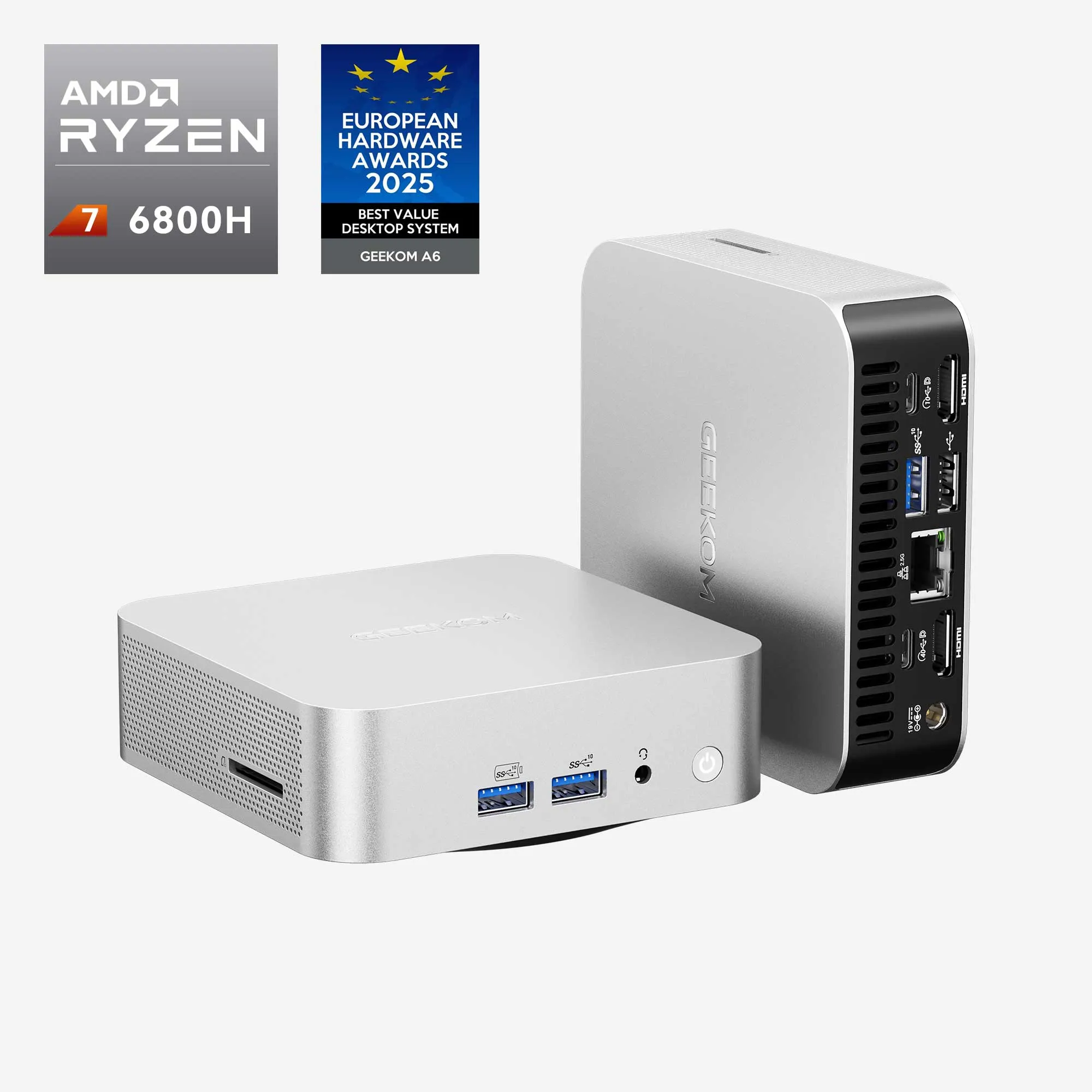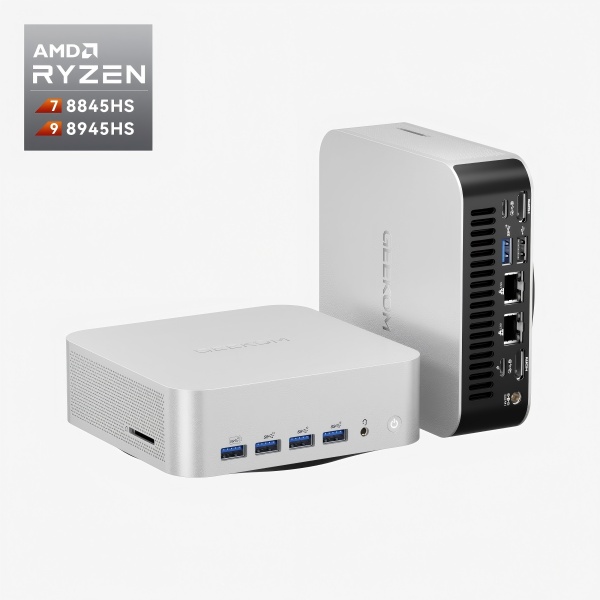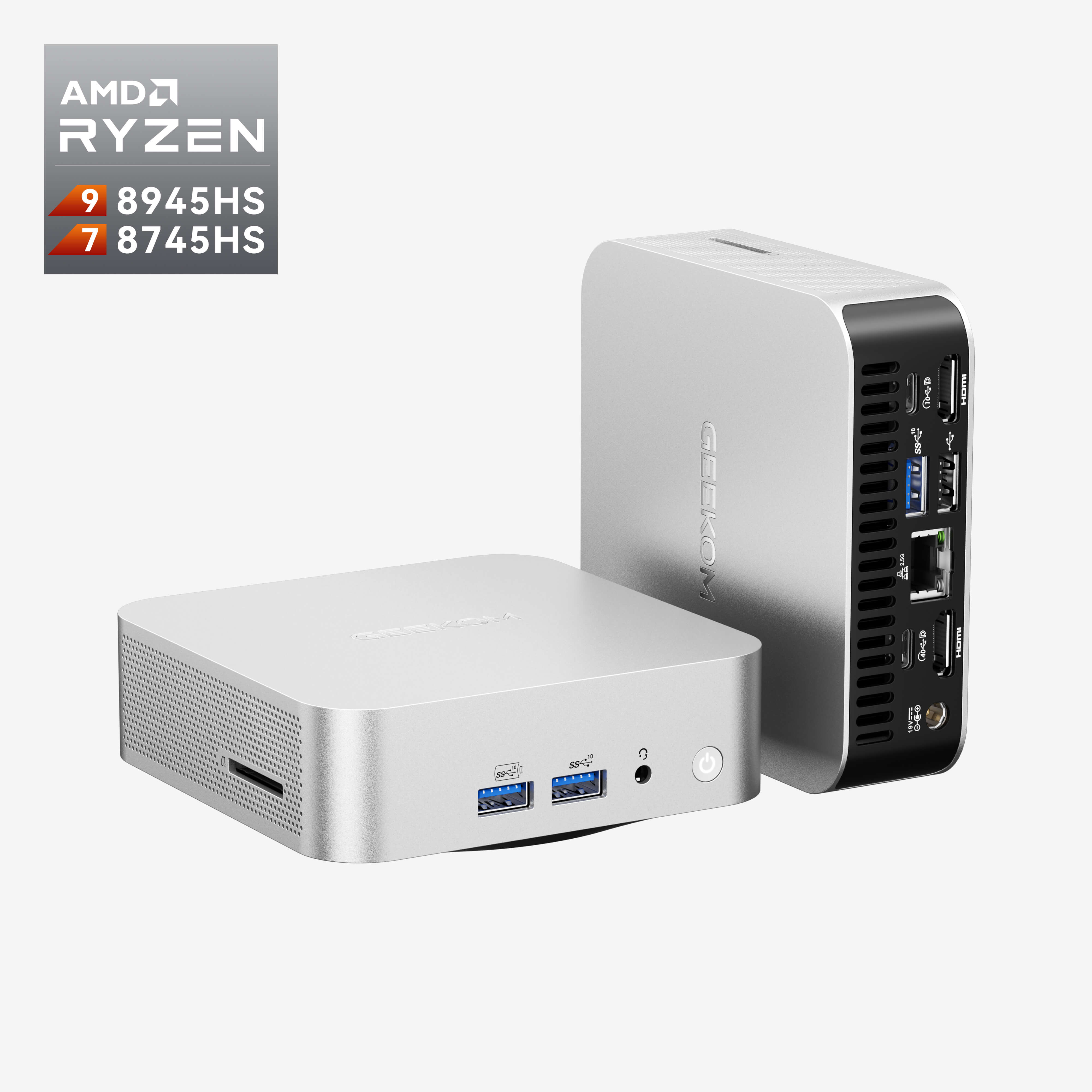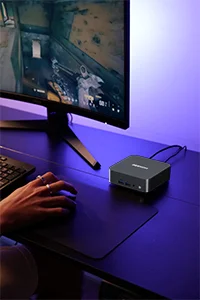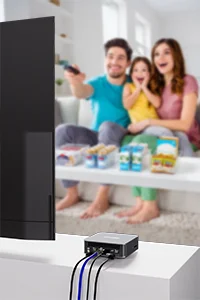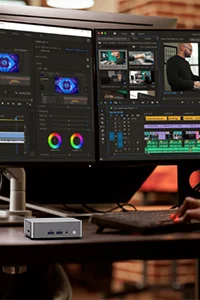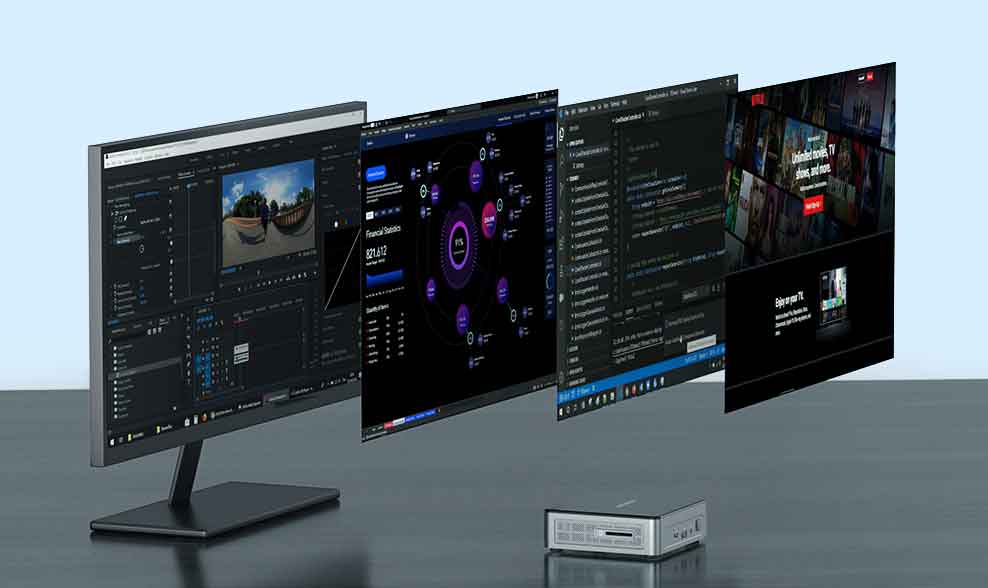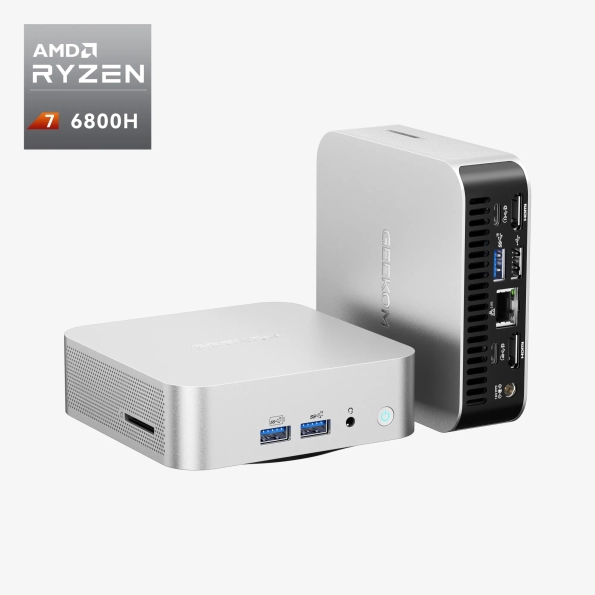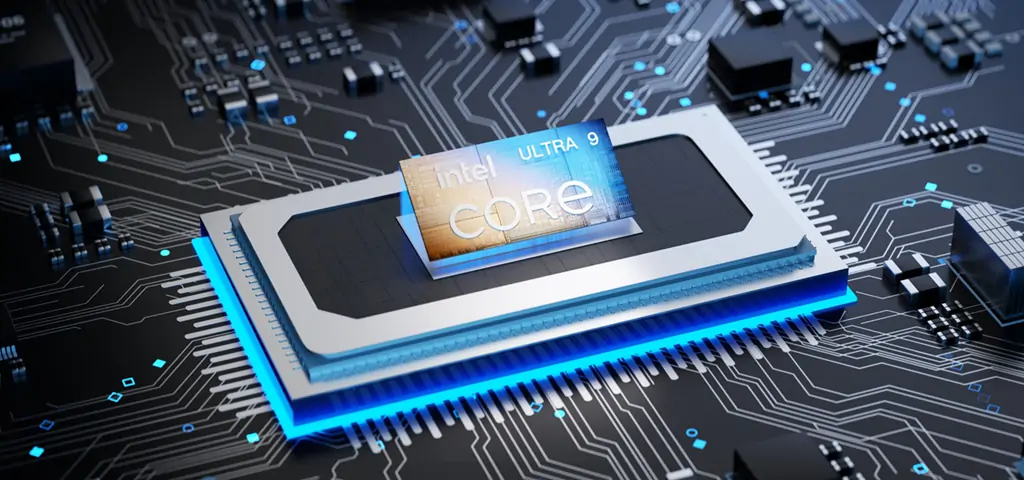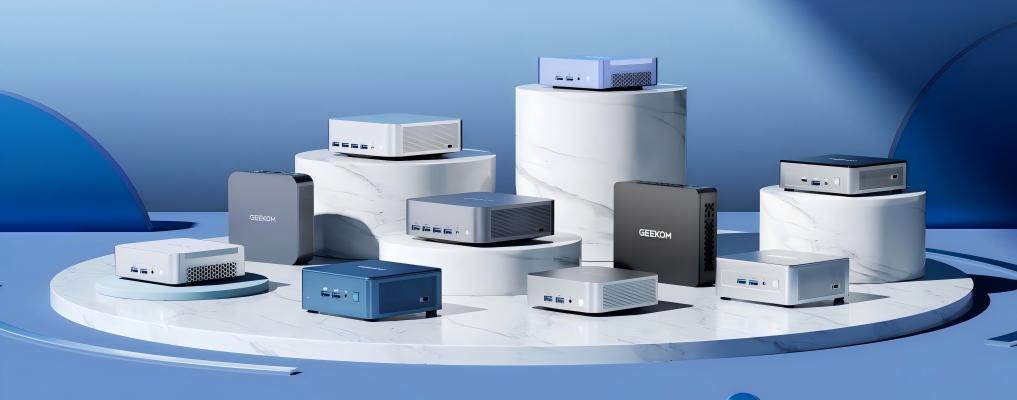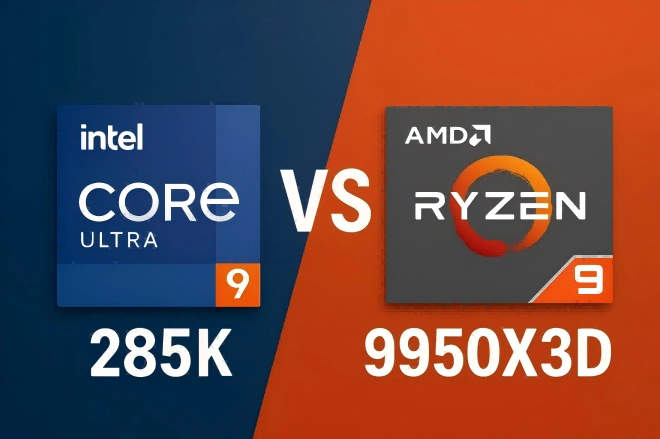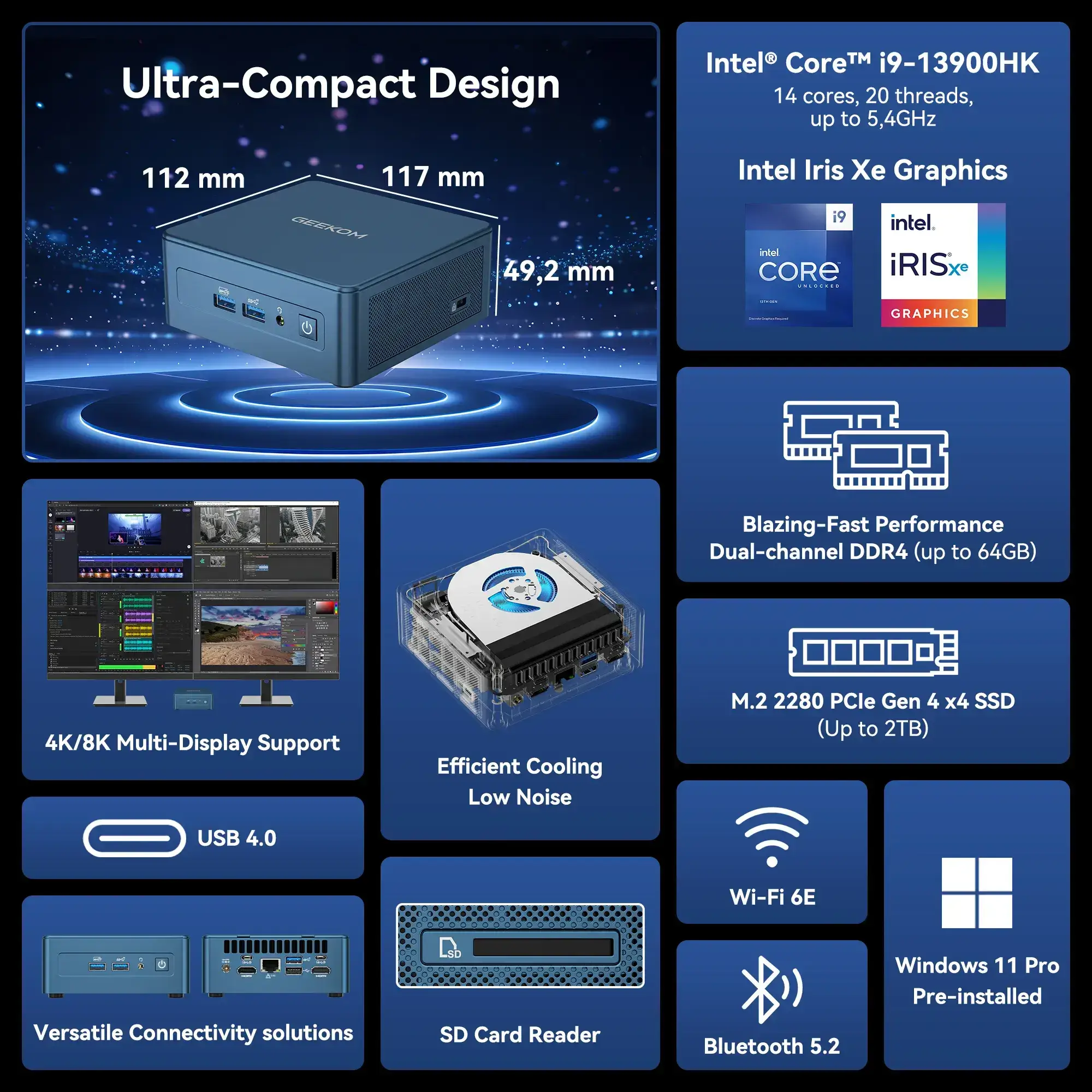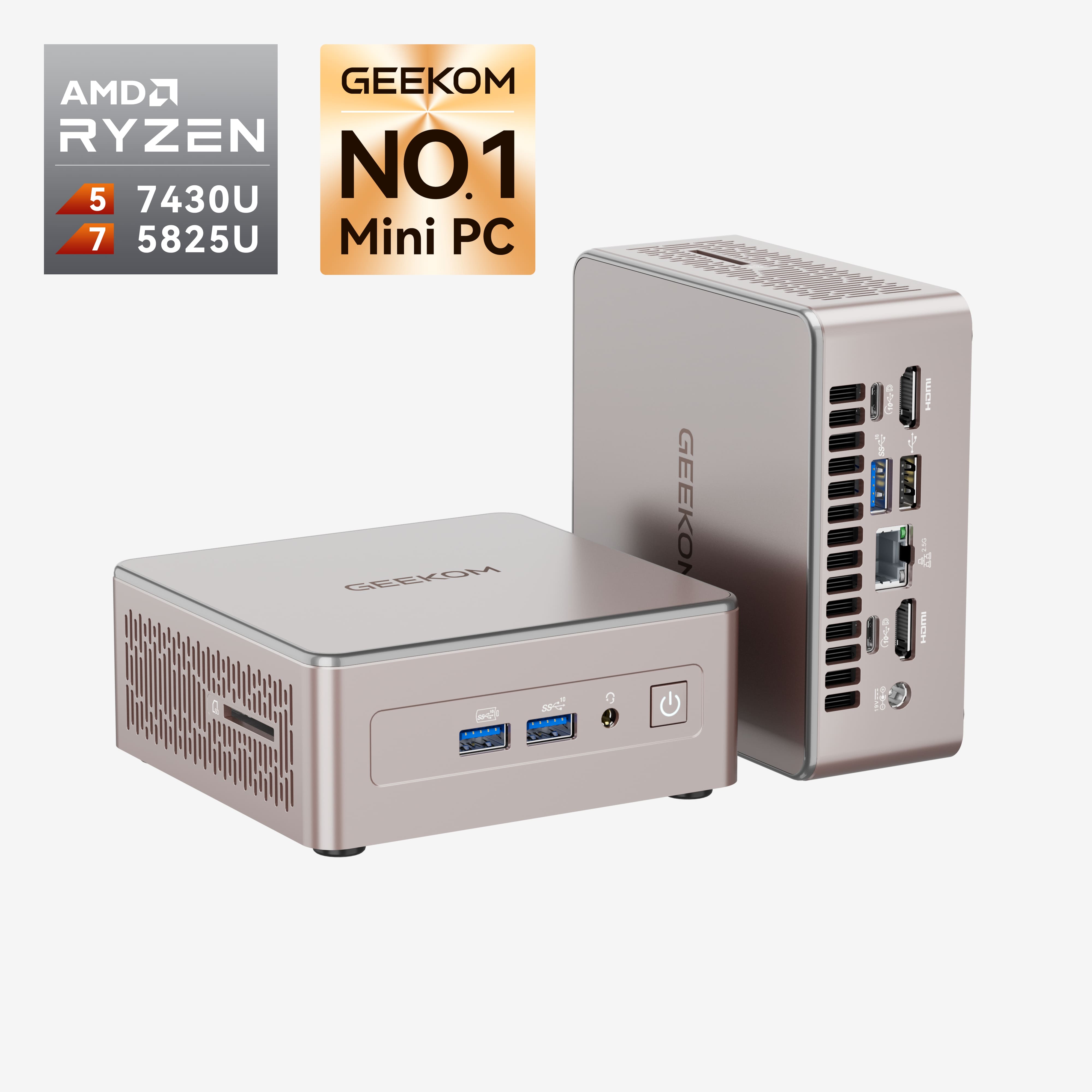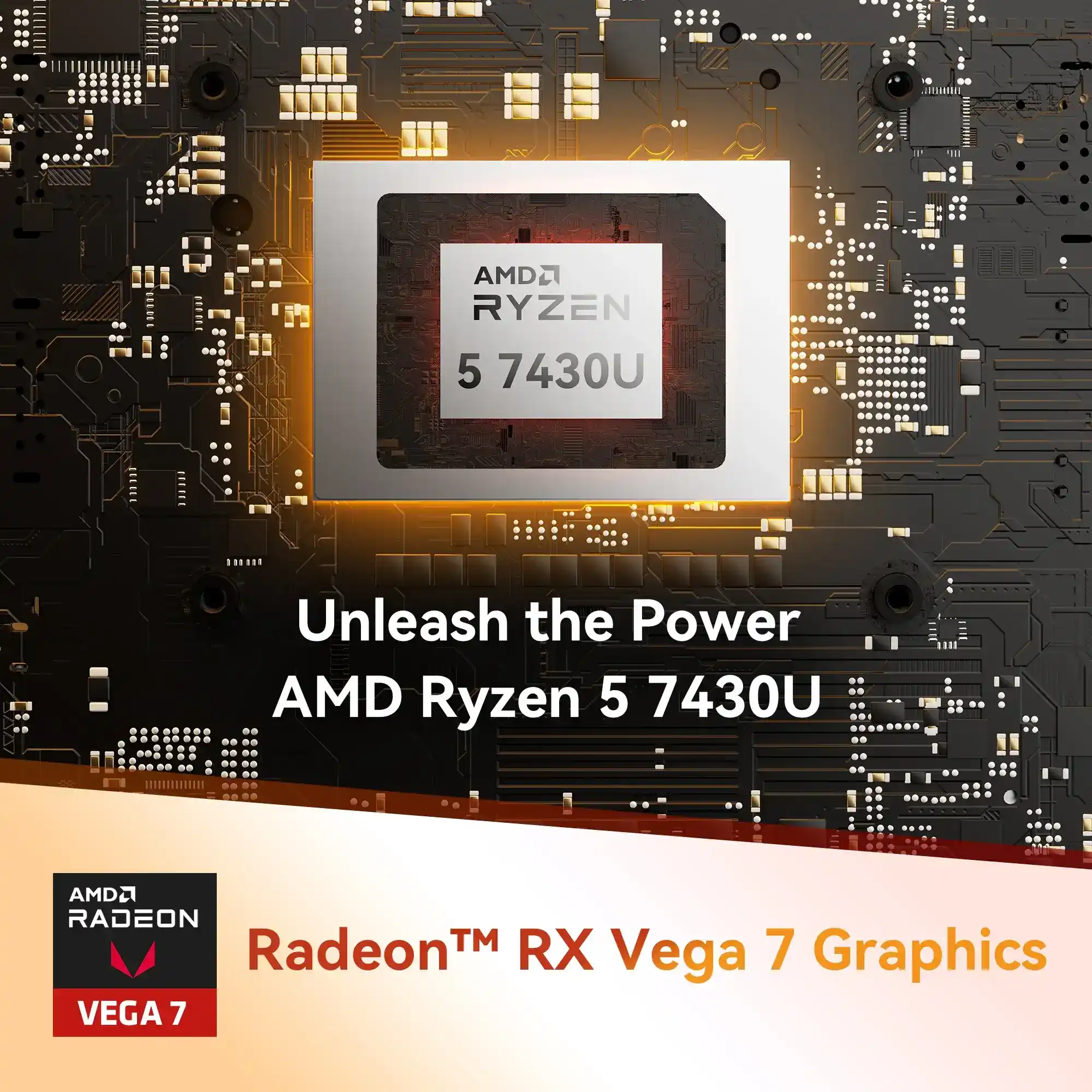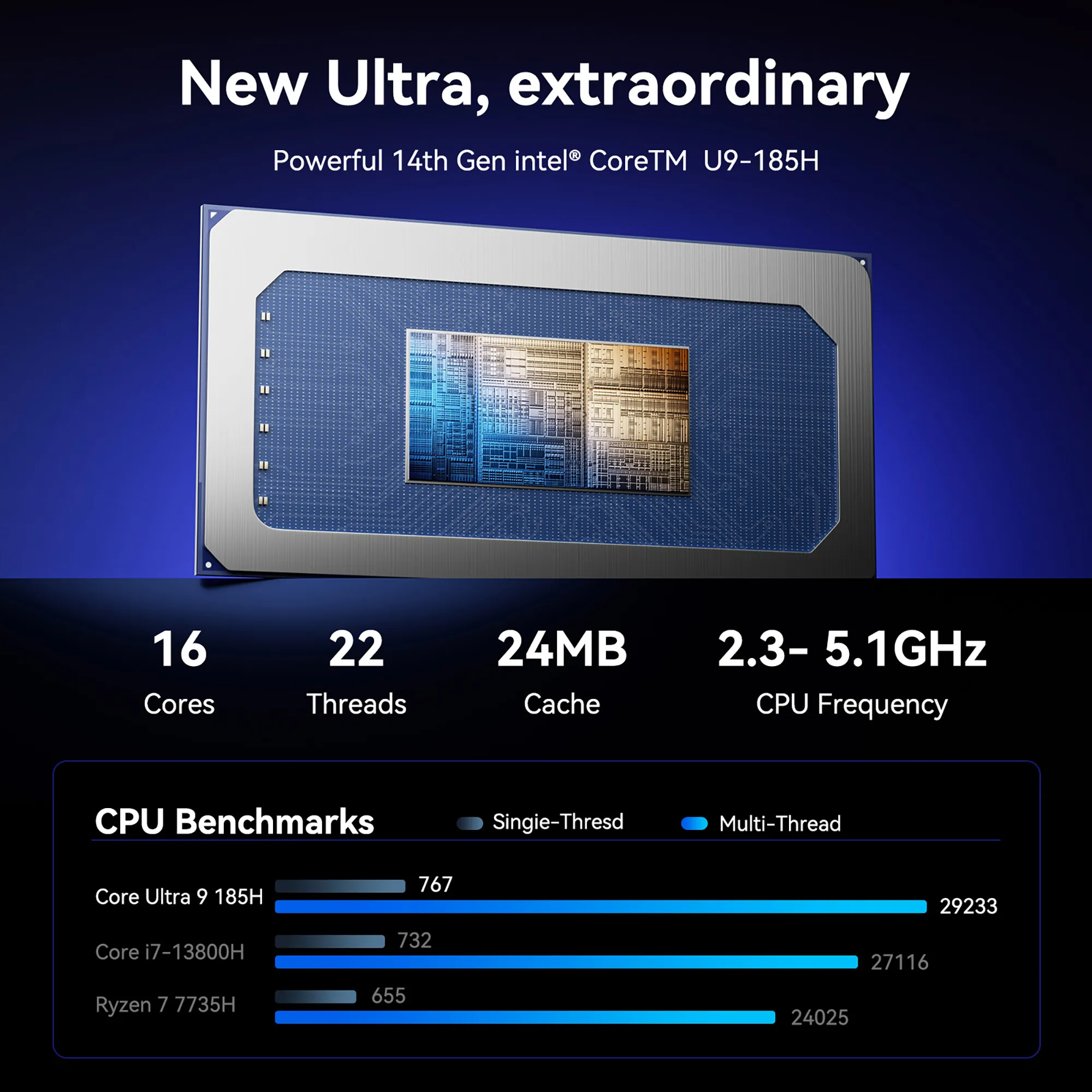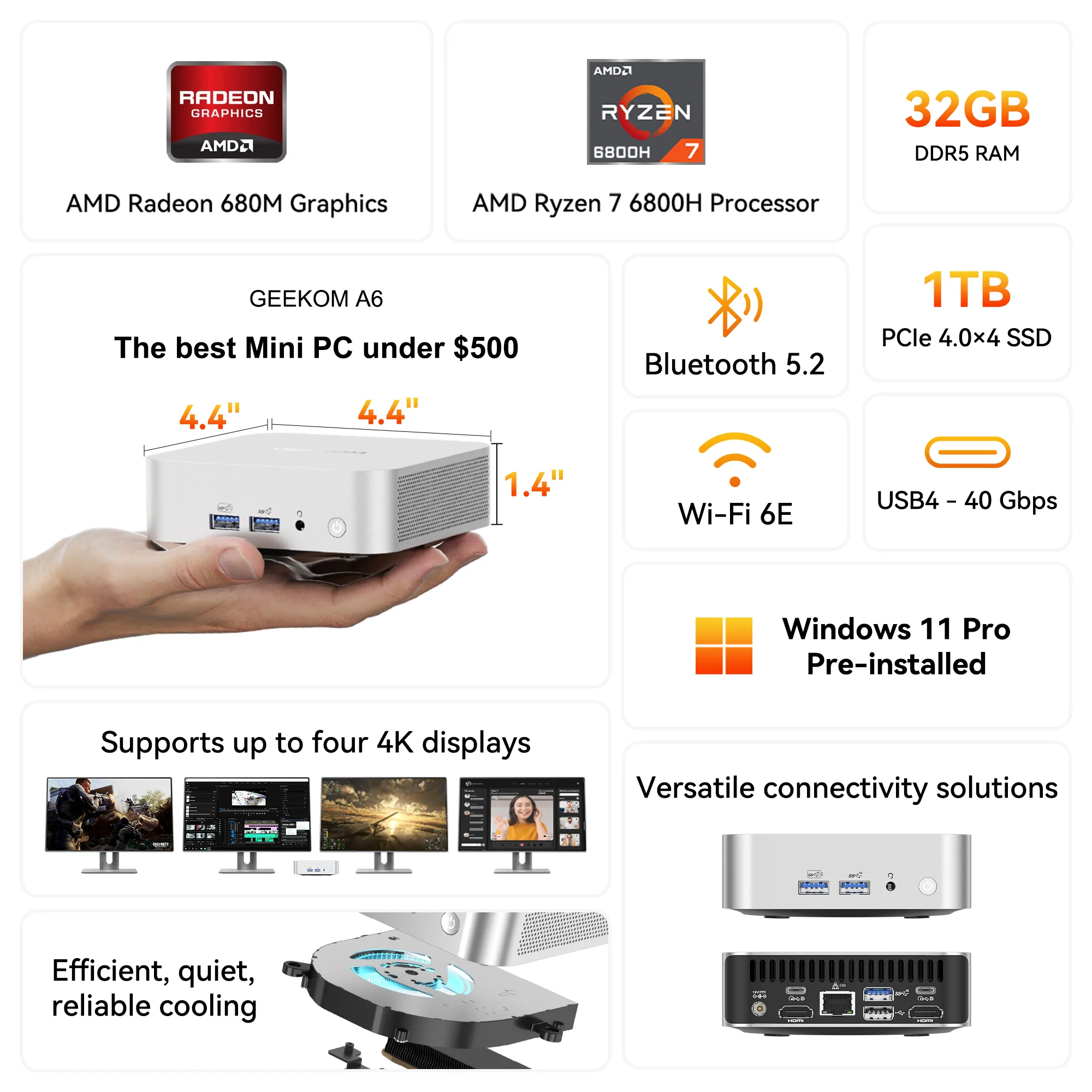Virtualization has revolutionized the way we utilize computing resources, enabling us to run multiple operating systems and applications simultaneously on a single machine.
To harness the power of virtualization, it’s essential to have a capable and efficient computing system that can handle the demands of running virtual machines.
While traditional virtualization setups require powerful servers, there has been a growing trend toward using mini PCs for virtualization due to their compact size, low power consumption, and cost-effectiveness.
Recommended Mini PCs for Virtualization
Based on the factors mentioned above, here are some of the best mini PCs for virtualization:
1. GEEKOM A6 Mini PC AMD Ryzen™ 7 6800H
- AMD Ryzen™ 7 6800H.
- AMD Radeon™ Graphics 680M.
- Dual-channel DDR5 4800MT/s, up to 64GB.
- M.2 2280 PCIe 4.0 ×4 SSD, up to 2TB.
- 2.5G Ethernet, Wi-Fi 6E, Bluetooth® 5.2.
- Pre-installed with Windows 11 Pro, ready to use.
2. GEEKOM Mini IT11
Price:
- 11th Gen Intel Core i7-1195G7
- Intel Iris Xe Graphics
- 32GB DDR4
- 1TB M.2 2280 SSD
- Wi-Fi 6
- Windows 11 Pro
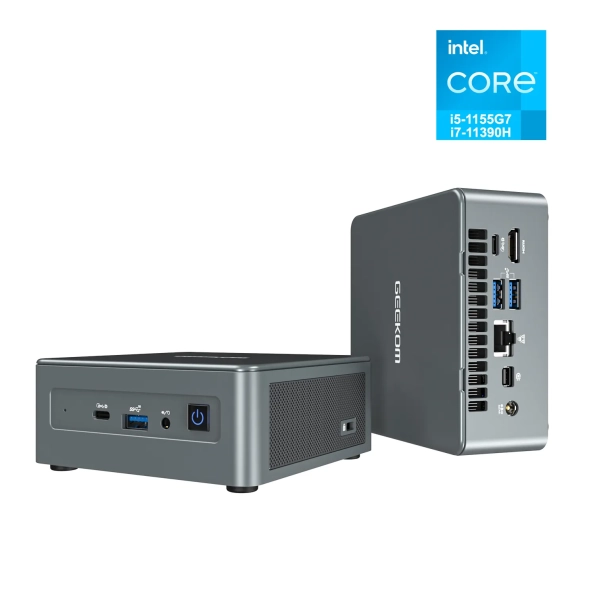
The Mini IT11 packs a powerful Intel Core i7 processor and supports up to 64GB of memory, making it an excellent choice for virtualization. It offers versatile storage options with an M.2 NVMe SSD slot and a 2.5″ drive bay.
The ample number of USB ports and connectivity options make it easy to connect various peripherals and devices. With its robust performance and hardware virtualization support, it’s an excellent choice for virtualization enthusiasts and professionals alike.
3. GEEKOM AS 6
Price:
- AMD Ryzen 9 6900HX
- AMD Radeon Graphics 680M
- 32GB DDR5 RAM
- 1TB M.2 2280 SSD
- Wi-Fi 6E
- Windows 11 Pro
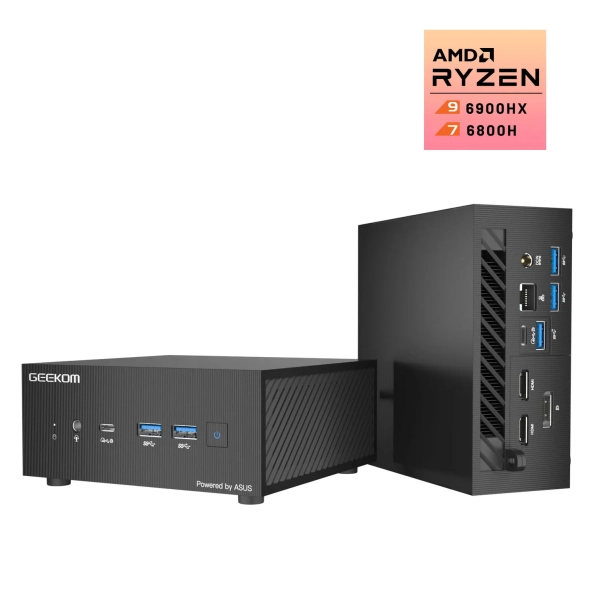
The GEEKOM AS 6 combines the power of an AMD Ryzen 9 processor with a compact form factor, making it an excellent choice for virtualization in constrained spaces.
The AS 6 also provides ample connectivity options, including USB 3.1, HDMI, and DisplayPort, and supports hardware virtualization technology, making it a reliable choice for virtualization needs.
3. GEEKOM Mini IT8
- Processor: 8th Gen Intel Core i5-8279U
- Memory: Up to 32GB DDR4 (SODIMM)
- Storage: 1x M.2 NVMe SSD slot, 1 x 2.5″ SATA HDD (7 mm) slot
- Connectivity: 5x USB ports (including 3 x USB 3.2), Ethernet port, Wi-Fi 5, Bluetooth 4.2
If you’re looking for a highly portable mini PC for light virtualization tasks, the Mini IT8 is worth considering. It features Intel Core i5 processors, supports up to 64GB of RAM, and offers both SSD and HDD storage options.
The Mini IT8 provides excellent connectivity with USB 3.1 ports, DisplayPort, and optional Thunderbolt ports, While its specifications are modest compared to the other recommendations, it can still handle basic virtualization needs.
The Benefits of Mini PCs for Virtualization
Using mini PCs for virtualization offers several advantages over traditional server-based setups.
1. Space-saving
One of the primary advantages of a mini PC is its compact size. These systems are significantly smaller than traditional desktop towers, allowing them to fit seamlessly into tight spaces such as offices, labs, or home setups.
The reduced footprint is particularly beneficial in scenarios where multiple virtual machines need to coexist, making mini PCs an excellent choice for small businesses or individuals with limited workspace.
2. Energy Efficiency
Mini PCs are designed to consume less power compared to their larger counterparts. Their energy-efficient components, such as low-power processors and solid-state drives (SSDs), contribute to reduced electricity consumption.
This feature is not only environmentally friendly but also helps in cost savings over time, especially in scenarios where multiple mini PCs are used for virtualization.
3. Cost-Effectiveness
Mini PCs often provide a cost-effective solution for virtualization needs. Their compact design reduces the overall hardware costs, as fewer components and materials are required.
Additionally, mini PCs consume less energy, resulting in long-term cost savings. These devices also facilitate easier maintenance and upgrades, saving both time and resources.
Looking for a more affordable option? Check: Best Mini PC Under $500 of 2025
4. Performance and Flexibility
Despite their small size, mini PCs boast impressive performance capabilities. Equipped with powerful processors, ample RAM, and high-speed storage options, they can handle resource-intensive virtualization workloads seamlessly.
Mini PCs also offer flexibility in terms of connectivity, allowing integration with various peripherals and network configurations.
Considerations for Choosing the Right Mini PC for Virtualization
While mini PCs offer numerous advantages for virtualization, it’s important to understand the key factors to consider when selecting a mini PC for virtualization.
1. Processor and Performance
The processor is the heart of any computing system, and virtualization demands significant processing power. Look for mini PCs that feature multi-core processors, such as Intel Core i5 or i7, or AMD Ryzen processors. These processors offer strong performance and enable smooth virtual machine operations.
2. RAM Capacity
Virtualization requires ample RAM to ensure smooth multitasking and efficient operation of virtual machines. Aim for a mini PC with at least 8GB of RAM, although 16GB or more is preferable for more demanding virtualization workloads.
Don’t want to be limited by this? try a mini PC with 32GB RAM
3. Storage Options
Having sufficient storage is crucial for virtualization, as you need space for both the host operating system and virtual machines. Look for mini PCs that offer a combination of solid-state drives (SSD) and hard disk drives (HDD) or opt for models that provide ample SSD storage capacity.
4. Cooling and Heat Dissipation
Mini PCs tend to generate more heat in a smaller space compared to traditional servers. Proper cooling mechanisms, such as efficient fans or heat sinks, are crucial to prevent overheating and ensure stable performance. Verify that the system has effective cooling mechanisms, such as integrated fans or heat sinks, to prevent overheating when running resource-intensive virtual machines.
5. Networking and Connectivity
Virtualization often relies on network connectivity for communication between virtual machines and the outside world. Mini PCs should offer a variety of networking options, including Ethernet ports and wireless connectivity, to ensure seamless integration into the network infrastructure. Additionally, the availability of expansion slots or adapters for additional network interfaces may be necessary for advanced networking configurations.
Conclusion
Mini PCs have revolutionized the virtualization landscape, offering a compact and efficient solution for running multiple virtual machines on a single device.
Ready to experience the power of a mini PC for virtualization? Don’t miss out on the opportunity to enhance your virtualization setup with a compact and versatile mini PC from GEEKOM.
Frequently Asked Questions (FAQ)
1. Can a mini PC handle virtualization efficiently?
Yes, mini PCs are capable of handling virtualization efficiently. While they may not have the same processing power as larger server-grade machines, modern mini PCs offer powerful CPUs, ample RAM, and storage options that can handle virtualization workloads effectively. They are designed to optimize performance while maintaining a compact form factor.
2. How many virtual machines can a mini PC support?
The number of virtual machines a mini PC can support depends on various factors, including the specific hardware specifications of the mini PC and the resource requirements of the virtual machines. High-end mini PCs with robust processors, sufficient RAM, and ample storage can typically handle multiple virtual machines simultaneously. However, it’s important to consider the workload and allocate resources accordingly to ensure optimal performance.
3. Is cooling a concern for mini PCs during virtualization?
Cooling is an important consideration when using a mini PC for virtualization, especially when running resource-intensive workloads. Mini PCs are typically equipped with cooling mechanisms such as fans and heat sinks to dissipate heat generated by the processor and other components. However, it’s crucial to ensure proper ventilation and airflow to prevent overheating. Additionally, monitoring the temperature and adjusting fan speeds or implementing additional cooling solutions, if necessary, can help maintain optimal performance.


